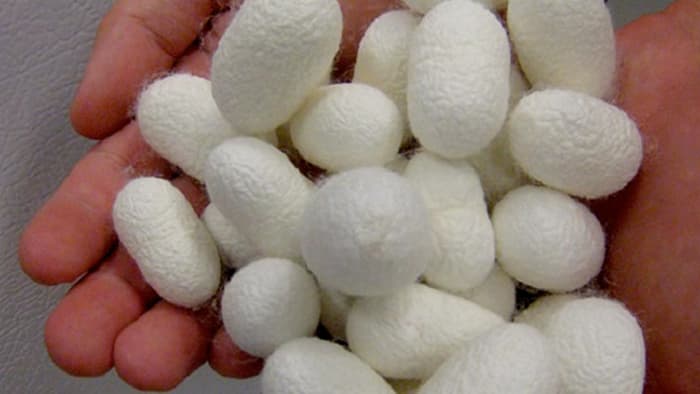
Scientists at Tuft University developed the new blood storage method by extracting a silk protein from silkworm cocoons called fibroin. This protein is renowned for its protective qualities when applied to other materials, as demonstrated by the fruit-preserving silk coating we covered last week (also a product of Tuft University).
The protein was purified and added to the blood, with the mixture then air-dried and stored at temperatures ranging from 22 to 45° C (72 to 113° F).
Then at different intervals, the team was able to retrieve the blood by dissolving the silk component in water, finding that the resulting samples were pure enough to be properly analyzed. The team also says its method provided superior protection to dried blood spotting, another technique for storing samples at room temperatures whereby a few drops are blotted onto filter paper and dried.
"We found that biomarkers could be successfully analyzed even after storage for 84 days at temperatures up to 113 degrees F," says the lead author on the research paper, Jonathan A. Kluge. "Encapsulation of samples in silk provided better protection than the traditional approach of drying on paper, especially at these elevated temperatures which a shipment might encounter during overseas or summer transport."
The discovery builds on previous work carried out by David Kaplan, a biomedical engineer at Tuft University. Kaplan has previously demonstrated the stabilizing properties of silk in antibiotics, vaccines and enzymes.
"This approach should facilitate outpatient blood collection for disease screening and monitoring, particularly for underserved populations, and also serve needs of researchers and clinicians without access to centralized testing facilities," he says. "For example, this could support large-scale epidemiologic studies or remote pharmacological trials."

 Previous page
Previous page Back to top
Back to top







